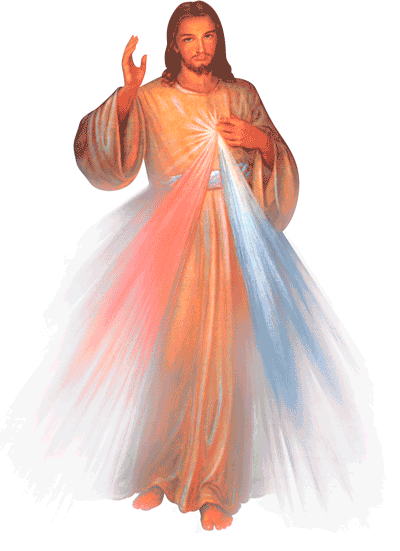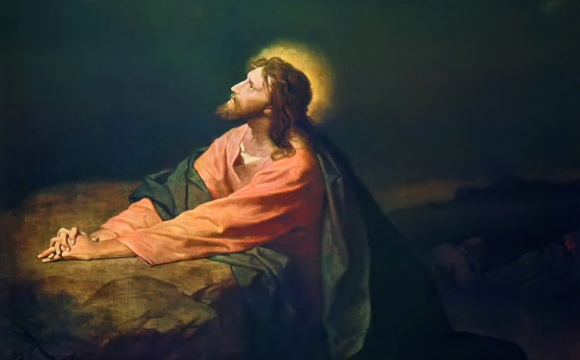
How to be or become a follower of Jesus Christ in the world and in your situation« [..] But when you pray, go to your inner room, close the door, and pray to your Father in secret. And your Father who sees in secret will repay you.[,,]»
Jesus' teaching is always aimed at the individual person. At this beginning of Lent I like to remember that Our Lord hates hypocrisy, showing oneself devout to be seen by others, boasting of having helped someone or given alms to show others how good and good you are..
« [..] When you fast, do not look gloomy like the hypocrites. They neglect their appearance, so that they may appear to others to be fasting. [..]»
Of course, it can also happen to each of us that we have to remember and show that we are Christians to someone we know. We must not hide it, but do it in a natural way without ostentation, and in such a way as to be an example and encourage others to follow Christ.
In doing this - it seems easy but it is not at all, at least for me who I'm writing here - it is important to do it in such a way as to avoid what Jesus recommends to us: not to show off to boast of being so, not to boast about it, not to be hypocritical.
HOW TO DO IT THEN: in my opinion it is important to examine ourselves, to examine our conscience to analyze whether what we are doing is right, in the sense that Jesus would approve of it.In my case I try to always think about what I am about to do or say before saying it or doing it. But of course I can always be wrong. So at the end of each day I stand in the presence of God and briefly review how I spent my time and made mistakes in something. So I ask myself, for example:
- if I have forgotten during the day to always be in the presence of Jesus and I have done something that may displease Him. I didn't remember to at least pray a little and give Him some time. Maybe telling Him about my day and talking to Him about my problems, even if He already knows them.
- if in dealing with my neighbor I have done something incorrect. I reflect and think if I have disrespected, offended, deceived, done harm, perhaps even unconsciously and without wanting to.
- if I have failed in my duties in my family, if I have been fair, if I have tried to please others while forgetting myself as far as possible
- if I gave in to some impulse without thinking. Everyone knows what their weakness is, and in my case I always wonder if I have failed to control myself in eating too much of something I liked, or in refusing to eat what I like less. But not only:
- if I have inordinately dedicated myself to something, cinema, TV or anything else that has disturbed me or distracted me from my duties
- if I understood my wife and children
- EVERYONE MAY CONTINUE ADDING ITEMS ACCORDING TO HIS OWN SITUATION
LET US THEREFORE BELIEVE IN JESUS CHRIST AND IN OUR SUPERNATURAL DESTINY
HISTORICAL NOTE: Lent and Saint Valentine
Lent (Latin term Quadragesima - 5th century AD) is the forty-day period of preparation for Easter
In the early Church the celebration of Easter was preceded by one or two days of fasting. This fast seems to have been oriented not so much to the Easter celebration but to the administration of baptism reserved for the Easter vigil. The custom of fasting was practiced by the catechumens and extended in subsequent times to the minister of baptism and to the entire ecclesial community. At that time, fasting did not have a penitential purpose but an ascetic-illumination one.
We have certain news about Lent only for the Church of Alexandria.
A fifth-century historian, Socrates Scholasticus, bears witness to this, reporting a period of fasting in the six weeks preceding Easter observed in Illyricum and Greece; in Rome, however, fasting lasted three weeks.The prolonged preparation for Easter was motivated by penitential practice. Those who wished to be reconciled with God and with the Church began their journey of preparation on the first of these Sundays (later it will be brought forward to the immediately preceding Wednesday) and was concluded on the morning of Holy Thursday, the day on which they obtained reconciliation.
In this way the penitents underwent a period of preparation that lasted forty days. Hence the Latin term Quadragesima.
The penitents undertook this path through the imposition of ashes and the use of a sackcloth as a sign of their contrition and their ascetic commitment.Towards the end of the fifth century, the Wednesday and Friday preceding Lent began to be celebrated as if they were part of it.
For the record: Ramadan - One of the 5 pillars of the Islamic faith is the Month of Fasting - ninth month of the Islamic lunar calendar, in which Muslims observe fasting from sunrise to sunset. It has no penitential aspect, but is practiced to commemorate the revelation of the Koran to Prophet Muhammad, the prophet of Islam, by the angel Gabriel.
…
Saint Valentine.
Saint Valentine also known as Saint Valentine of Terni or Saint Valentine of Interamna (Terni, ... – Rome, 14 February 273), was a Christian bishop and martyr.
Venerated as a saint by the Catholic Church, the Orthodox Church and subsequently by the Anglican Church, he is considered the patron saint of lovers and protector of epileptics.
The oldest news of Valentino di Terni is in the Martyrologium Hieronymianum, an official document of the Church of the 6th century. V-VI, where his name appears, the city of burial and the dies natalis, i.e. the day of his death, February 14th. Still in the VI century, another document, the Passio Sancti Valentini episcopi et martiri (BHL 8460)[3], tells us some details of the martyrdom: the torture(º), the decapitation at night and in secret, the burial in Terni by the disciples Proculus, Ephebus and Apollonius, their subsequent martyrdom and their burial again in Terni.Consumerism uses Valentine's Day exclusively as a protector of lovers. We see it in TV commercials and in movies.
(º) the Roman citizen guilty of serious crimes and sentenced to death could not be flogged or tortured, but only executed by having his head cut off. Therefore certain stories of martyrdom are almost certainly not true or an exaggeration, because the emperor Caracalla had granted Roman citizenship to the entire empire, therefore abolished the FLAGRUM (scourge) and prohibited crucifixion.
Emperor Caracalla, say Marcus Aurelius Severus Antoninus Pius Augustus (in Latin: Marcus Aurelius Severus Antoninus Pius Augustus; Lugdunum, 4 April 188 – Carrah, 8 April 217), born Lucius Septimius Bassianus (in Latin: Lucius Septimius Bassianus), also known by the honorific name of Marcus Aurelius Antoninus Augustus (in Latin: Marcus Aurelius Antoninus Augustus) from 198 to 211 but better known by the nickname of Caracalla, from the name of the Gallic cloak he used to wear, was a Roman emperor, belonging to the Severan dynasty , who reigned from 198 to 217, the year of his death.
Holy Gospel of Jesus Christ Matthew 6,1-6.16-18.

Do not be afraid! the mercy of Jesus is INFINITE When you give alms, do not blow a trumpet before you, as the hypocrites do in the synagogues and in the streets to win the praise of others. Amen, I say to you, they have received their reward. But when you give alms, do not let your left hand know what your right is doing, so that your almsgiving may be secret. And your Father who sees in secret will repay you.
When you pray, do not be like the hypocrites, who love to stand and pray in the synagogues and on street corners so that others may see them. Amen, I say to you, they have received their reward. But when you pray, go to your inner room, close the door, and pray to your Father in secret. And your Father who sees in secret will repay you.
When you fast, do not look gloomy like the hypocrites. They neglect their appearance, so that they may appear to others to be fasting. Amen, I say to you, they have received their reward. But when you fast, anoint your head and wash your face, so that you may not appear to be fasting, except to your Father who is hidden. And your Father who sees what is hidden will repay you."
Copyright © Confraternity of Christian Doctrine, USCCB
CTRL + increases page dimension
CTRL - decreases




